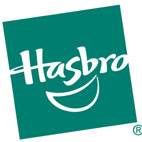Scrabulous is Toast: Did Hasbro Really Have a Case?
Key Takeaways
- Hasbro’s claim that Scrabulous infringed on Scrabble’s intellectual property led to the disabling of the Scrabulous application for US and Canadian users.
- According to the US Copyright Office, games are not protected by copyright law, which only extends to the specific expression of an author in literary, artistic, or musical form, not to any idea, system, method, or trademark material involved in the development or playing of a game.
- The only aspects of Scrabble that Hasbro could claim under US copyright law are the rules, box art, and visual cues on the game board and pieces. Scrabulous did not appear to infringe on these elements.
- Scrabulous did infringe on the Scrabble trademark, as the name and game design were close enough to cause confusion between the two products. This could have potentially been avoided with a name change and slight redesign of the game board.
 Anyone logging into the super popular Scrabulous board game application on Facebook today from the US or Canada was greeted by this message, “Scrabulous is disabled for US and Canadian users until further notice.” The demise of Scrabulous, one of Facebook’s most popular applications, was a long time coming and pretty well expected by anyone following the story.
Anyone logging into the super popular Scrabulous board game application on Facebook today from the US or Canada was greeted by this message, “Scrabulous is disabled for US and Canadian users until further notice.” The demise of Scrabulous, one of Facebook’s most popular applications, was a long time coming and pretty well expected by anyone following the story.
Last week, Hasbro’s general counsel, Barry Nagler, said that Scrabulous was a “clear and blatant infringement of [Hasrbo’s] Scrabble intellectual property” and suing the application’s creators was an effort to protect “the integrity of the Scrabble brand.” However, it’s becoming a bit had to sort out just what intellectual property Hasbro owns regarding Scrabble.
According to the US Copyright Office games are not protected by copyright law:
The idea for a game is not protected by copyright. The same is true of the name or title given to the game and of the method or methods for playing it.
Copyright protects only the particular manner of an author’s expression in literary, artistic, or musical form. Copyright protection does not extend to any idea, system, method, device, or trademark material involved in the development, merchandising, or playing of a game. Once a game has been made public, nothing in the copyright law prevents others from developing another game based on similar principles.
Some material prepared in connection with a game may be subject to copyright if it contains a sufficient amount of literary or pictorial expression. For example, the text matter describing the rules of the game, or the pictorial matter appearing on the gameboard or container, may be registrable.
So strictly speaking of copyright, the only thing Hasbro can lay claim to in the US are the rules, the box art, and the visual cues on the game board and game pieces. Scrabulous doesn’t appear to infringe on any of that — they don’t print any rules (they link to a copy on Wikipedia), nor have they reproduced the Scrabble logo or any box or board art. Their game board is very similar, but methods can’t be copyrighted.
They can be patented, though. However, patents generally only last 20 years — so any patents on Scrabble, which was sold starting in 1948 — have likely long since expired. Which means that only leaves trademark.
The name Scrabble is a trademark of Hasbro in the US and Canada (and Mattel in the rest of the world). Colors and product design can also be trademarked. Scrabulous most definitely infringes on the Scrabble trademark — it is close enough that there is a likelihood of confusion between the two products. The colors and design of the game board could also be trademarked, which Scrabulous also would have infringed upon. But could a name change and slight redesign of the game board (tile size, fonts, colors, text placement) have been enough to save Scrabulous?
That’s what Bogglific — a Boggle clone also served a take down noticed by Hasbro this past winter — did and they’re still around. Blogglific is now called Prolific, and made very slight changes to scoring (the game’s creator added a bonus tile and changed how much found words are worth). The game, though, is essentially the same as Boggle in both look and game play. Scrabulous could try the same thing and skirt any lawsuits that Hasbro tries to throw at them.
Caveat: I am not a lawyer, so if I’ve gotten any of this wrong, please tell me why in the comments! (For example, though copyright law doesn’t protect games, the Copyright Office page does talk about copyright’s inability to stop others from creating games based on “similar principles,” whereas Scrabulous was a direct copy of Scrabble. That goes beyond “similar” and perhaps that matters — does anyone know?)
Frequently Asked Questions about Scrabulous and Copyright Law
What is the main reason behind the shutdown of Scrabulous?
The primary reason behind the shutdown of Scrabulous was due to copyright infringement. Hasbro, the company that owns the rights to Scrabble in North America, filed a lawsuit against the creators of Scrabulous, alleging that the online game was a direct copy of their board game, Scrabble. The lawsuit claimed that Scrabulous violated both trademark and copyright laws, leading to its removal from Facebook.
How does copyright law apply to online games like Scrabulous?
Copyright law protects original works of authorship, including games. In the case of Scrabulous, the game was deemed to be too similar to Scrabble, infringing on Hasbro’s copyright. The law applies to all elements of a game, including its rules, design, and the way it is played. Therefore, creating an online game that closely mimics an existing game can lead to legal issues.
What is the difference between copyright and trademark infringement?
Copyright infringement involves the unauthorized use of a work that is protected by copyright law, without the permission of the copyright owner. On the other hand, trademark infringement involves the unauthorized use of a trademark (a logo, symbol, phrase, or word) that can cause confusion about the source of goods or services. In the case of Scrabulous, Hasbro alleged both copyright and trademark infringement.
Could Scrabulous have avoided the lawsuit?
It’s possible that Scrabulous could have avoided the lawsuit by making significant changes to the game to differentiate it from Scrabble. This could include altering the game’s rules, design, and gameplay. However, the extent of these changes would need to be substantial enough to avoid any confusion with the original game.
What was the outcome of the lawsuit?
The lawsuit resulted in Scrabulous being removed from Facebook. The creators of Scrabulous also had to pay an undisclosed amount in damages to Hasbro. This case serves as a reminder of the importance of respecting intellectual property rights when creating online content.
What is the impact of this case on other online games?
This case has set a precedent for other online games. It highlights the importance of ensuring that any game developed does not infringe on the intellectual property rights of others. Developers must be careful to create original content or obtain the necessary permissions before using elements from existing games.
What are the potential penalties for copyright infringement?
Penalties for copyright infringement can be severe. They can include hefty fines and even imprisonment in some cases. In addition, the infringing party may be required to pay damages to the copyright owner, which can amount to significant sums.
How can I ensure that my online game does not infringe on copyright?
To ensure that your online game does not infringe on copyright, it’s important to create original content. If you wish to use elements from an existing game, you should seek legal advice and obtain the necessary permissions from the copyright owner.
What is the role of Facebook in this case?
Facebook was the platform where Scrabulous was hosted. When Hasbro filed the lawsuit, Facebook removed Scrabulous from its platform in compliance with the law. Facebook was not a party to the lawsuit.
What is the current status of Scrabulous?
After the lawsuit, Scrabulous was removed from Facebook and is no longer available. The creators of Scrabulous launched a new game called Wordscraper, which has significant differences from Scrabble to avoid any legal issues.
Before joining Jilt, Josh Catone was the Executive Director of Editorial Projects at Mashable, the Lead Writer at ReadWriteWeb, Lead Blogger at SitePoint, and the Community Evangelist at DandyID. On the side, Josh enjoys managing his blog The Fluffington Post.








